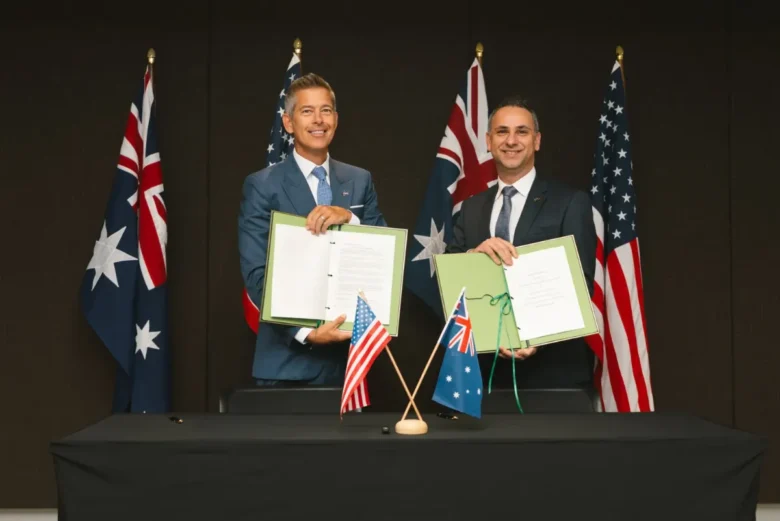and the Australian Space Agency signed a framework agreement in Sydney on Tuesday, marking a new stage in more than 50 years of cooperation between the two nations. Acting NASA Administrator Sean Duffy and Australian Space Agency chief Enrico Palermo signed the deal during the International Astronautical Congress, which Australia is hosting for the first time since 1988.
The agreement sets out how the two countries will develop joint projects in aeronautics and space exploration, with a focus on peaceful uses and long-term collaboration.
The timing reflects the high-profile nature of the International Astronautical Congress, where officials, researchers, and companies from around the world meet to exchange ideas.
Duffy described Australia as a reliable partner, noting the role it played in the Apollo program and more recently in the Artemis program. The new agreement raises their partnership to a treaty-level understanding, providing a framework for larger and more complex projects in the future.
The United States and Australia first formalized their space ties in 1960. Since then, Australian ground stations have played a central role in tracking and relaying data for U.S. missions. Canberra’s station in the Deep Space Network helped track Apollo 11 and carried communications during the Apollo 13 emergency.
Today, it continues to operate as part of NASA’s system, sending commands to spacecraft such as Mars rovers and the James Webb Space Telescope (JWST) when U.S.-based antennas are not in position.
The new agreement includes joint work in multiple areas. These range from planetary exploration and Earth monitoring to geodesy, a field that measures Earth’s gravity to track sea levels and climate change.
Space medicine and aeronautics are also included, such as research into quieter aircraft engines. Australia’s location in the Southern Hemisphere also gives it a vantage point for observing cosmic events, allowing it to contribute to global monitoring of high-energy events like gamma-ray bursts.
Australia is developing its own contributions to lunar exploration. A semi-autonomous rover is under construction and set to launch before 2030. It will travel aboard a commercial lander as part of NASA’s CLPS program, carrying a U.S. instrument designed to analyze lunar soil for water ice and minerals.
The rover will use onboard navigation to avoid craters and obstacles, serving as a test case for future human operations on the Moon.
Australia joined the Artemis Accords in 2020, aligning itself with NASA’s framework for cooperative lunar exploration. This week’s Artemis principals’ meeting, co-hosted by Australia and the United Arab Emirates, focused on international coordination for future lunar bases.
Duffy noted that the collaboration could extend to Mars, with both countries sharing research on the effects of space travel on human health. Palermo said the partnership will also drive opportunities for Australian industries, including satellite networks that track natural disasters like bushfires.
Officials said the agreement is a practical step to expand cooperation in science, industry, and spaceflight. By combining technical knowledge and resources, NASA and the Australian Space Agency aim to make space operations more efficient and open new opportunities for exploration and research.

